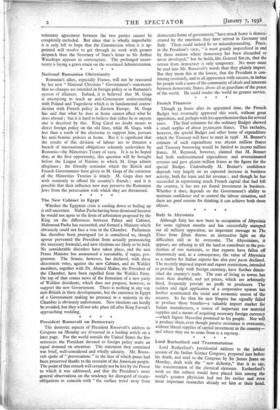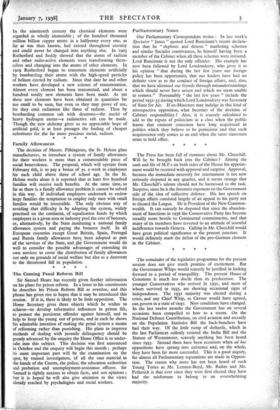Lord Rutherford and Transmutation Lord Rutherford's presidential address to the
jubilee session of the Indian Science Congress, prepared just-before his death, and read to the Congress by Sir James Jeans on Monday, dealt with the " new alchemy," that is to say, the transmutation of the chemical elements. Rutherford's work on this subject would have placed him= among the world's greatest physicists had not his earlier and even more important researches already set him at their head. In the nineteenth century the chemical elements were regarded as wholly immutable ; of the hundred thousand million billion copper atoms in a halfpenny every one, as far as was then known, had existed throughout eternity and could never be changed into anything else. In 1903 Rutherford and Soddy showed that the atoms of radium and other radio-active elements were transforming them- selves and changing into the atoms of other elements. In 1919 Rutherford began to transmute elements artificially by bombarding their atoms with the high-speed particles of helium ejected by radium. Since that date he and other workers have developed a new science of transmutation. Almost every element has been transmuted, and about a hundred totally new elements have been made. As yet these new elements have been obtained in quantities far too small to be seen, but even so they may prove of use, for they emit radiations like those of radium. Thus by bombarding common salt with deutrons—the nuclei of heavy hydrogen atoms—a radioactive salt can be made. Though the new alchemy gives us no appreciable hope of artificial gold, it at least presages the finding of cheaper substitutes for the far more precious metal, radium. * * * *










































 Previous page
Previous page